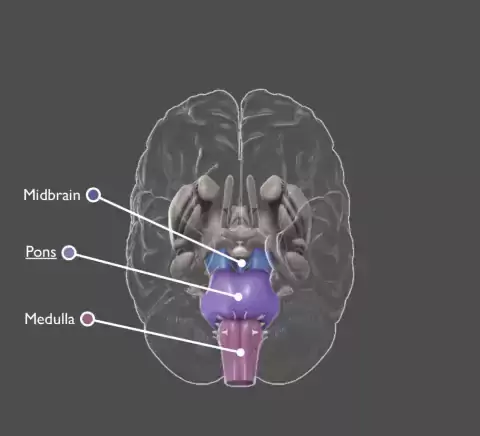Understanding and Coding MDS 3.0 Item J2940: Major Surgery - Repair of Deep Ulcers, Internal Brachytherapy, Bone Marrow, or Stem Cell Harvest/Transplant
Understanding and Coding MDS 3.0 Item J2940: Major Surgery – Repair of Deep Ulcers, Internal Brachytherapy, Bone Marrow, or Stem Cell Harvest/Transplant
Introduction
Purpose:
MDS Item J2940, Major Surgery – Repair of Deep Ulcers, Internal Brachytherapy, Bone Marrow, or Stem Cell Harvest/Transplant, is used to document significant surgical procedures a resident has undergone. Accurate coding of these major surgeries helps inform care planning and recovery strategies. This article provides a detailed guide on how to code MDS Item J2940 according to MDS 3.0 guidelines.
What is MDS Item J2940?
Explanation:
MDS Item J2940 refers to specific types of major surgeries, including:
- Repair of deep ulcers: These procedures involve surgically treating severe pressure ulcers (bedsores) or other deep skin ulcers that affect multiple layers of tissue.
- Internal brachytherapy: This is a type of cancer treatment in which radioactive seeds or sources are placed inside or near a tumor to deliver targeted radiation.
- Bone marrow or stem cell harvest/transplant: Bone marrow or stem cells are collected for transplantation, typically as part of treatment for conditions such as leukemia or other blood disorders.
Documenting these surgeries is essential for monitoring the resident’s recovery and planning post-operative care, including managing pain, wound care, and rehabilitation.
Guidelines for Coding J2940
Coding Instructions:
To accurately code Item J2940, follow these steps:
-
Review the Resident’s Medical Records:
- Examine the medical records to confirm if the resident has undergone one of the following major surgeries:
- Repair of deep ulcers,
- Internal brachytherapy for cancer,
- Bone marrow or stem cell harvest or transplant.
- Examine the medical records to confirm if the resident has undergone one of the following major surgeries:
-
Confirm the Surgery Meets the Criteria:
- Ensure that the procedure qualifies as major surgery involving anesthesia, significant recovery time, and complex post-operative care.
-
Code Based on the Type of Surgery:
- Code “1” for Repair of Deep Ulcers, Internal Brachytherapy, Bone Marrow, or Stem Cell Harvest/Transplant if any of these surgeries have been performed.
- If the resident has not undergone these surgeries, leave this item unmarked.
-
Enter the Response in Item J2940:
- If one of these major surgeries is identified, enter “1” in J2940.
Example Scenario 1:
A resident underwent surgery for the repair of a stage 4 pressure ulcer involving tissue loss and exposure of bone. In this case, “1” would be entered in Item J2940 to document the surgical procedure.
Example Scenario 2:
A resident with cancer received internal brachytherapy as part of their treatment plan, with radioactive seeds implanted near the tumor site. In this case, “1” would be entered in Item J2940.
Example Scenario 3:
A resident underwent a bone marrow transplant to treat leukemia. “1” would be entered in J2940 to document this major surgery.
Best Practices for Accurate Coding
Documentation:
- Ensure the resident’s medical records clearly document the type of surgery, including the date of the procedure, the surgical technique used, and any follow-up care or rehabilitation required.
- Record the type of cancer treated with internal brachytherapy or the condition treated with bone marrow or stem cell transplantation.
Communication:
- Communicate with the interdisciplinary care team, including surgeons, oncologists, and rehabilitation specialists, to ensure a comprehensive recovery plan is in place.
- Discuss the surgery and its implications with the resident and their family members, providing clear guidance on post-surgical care, rehabilitation, and any necessary follow-up treatments.
Monitoring and Follow-Up:
- Monitor the resident for post-operative complications, such as infection, wound healing issues, or adverse reactions to cancer treatments. Ensure ongoing pain management and wound care is provided for residents recovering from deep ulcer repair or transplant surgery.
- Coordinate follow-up appointments with specialists as needed, especially for cancer treatment or transplant recovery.
Conclusion
Summary:
MDS Item J2940 is used to document specific major surgeries, including repair of deep ulcers, internal brachytherapy, and bone marrow or stem cell harvest/transplant. Accurate coding of this item ensures that post-operative care and rehabilitation are effectively managed, improving outcomes for residents. By following the guidelines and best practices outlined in this article, healthcare professionals can ensure comprehensive care for residents recovering from these complex surgeries.
Click here to see a detailed step-by-step coding guide on how to complete this item set
Reference
CMS's Long-Term Care Facility Resident Assessment Instrument 3.0 User’s Manual, Version 1.19.1, October 2024. Refer to [Chapter 3, Page 3-127] for detailed guidelines on coding major surgeries such as ulcer repair, brachytherapy, and transplant procedures.
Disclaimer
Please note that the information provided in this guide for MDS 3.0 Item J2940: Major Surgery – Repair of Deep Ulcers, Internal Brachytherapy, Bone Marrow, or Stem Cell Harvest/Transplant was originally based on the CMS's Long-Term Care Facility Resident Assessment Instrument 3.0 User’s Manual, Version 1.19.1, October 2024. Every effort will be made to update it to the most current version. The MDS 3.0 Manual is typically updated every October. If there are no changes to the Item Set, there will be no changes to this guide. This guidance is intended to assist healthcare professionals, particularly new nurses or MDS coordinators, in understanding and applying the correct coding procedures for this specific item within MDS 3.0. The guide is not a substitute for professional judgment or the facility’s policies. It is crucial to stay updated with any changes or updates in the MDS 3.0 manual or relevant CMS regulations. The guide does not cover all potential scenarios and should not be used as a sole resource for MDS 3.0 coding. Additionally, this guide refrains from handling personal patient data and does not provide medical or legal advice. Users are responsible for ensuring compliance with all applicable laws and regulations in their respective practices.










